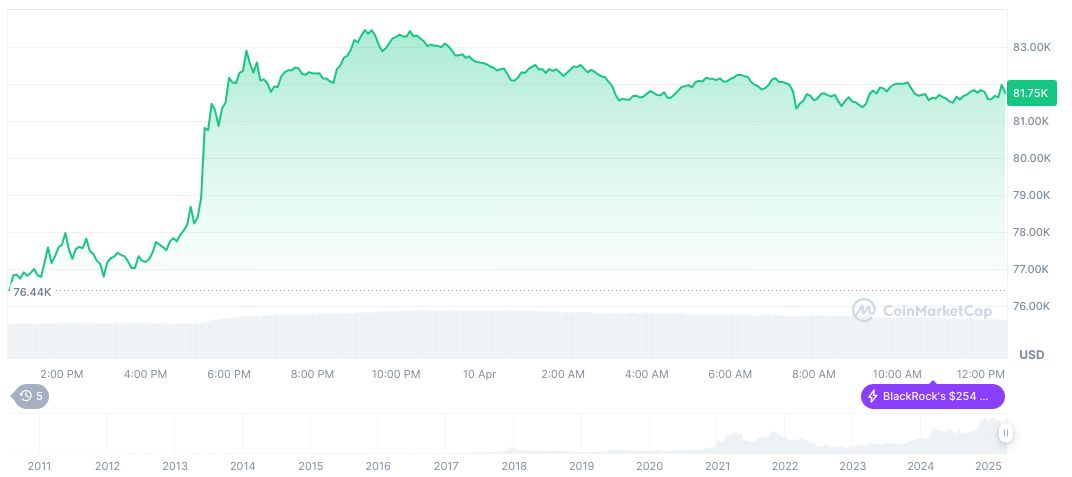- Fed’s Logan stresses need to control tariff-driven inflation.
- Policy stance currently well-calibrated.
- Market confidence reflected with Bitcoin surge.
Federal Reserve Bank of Dallas President Lorie Logan affirmed on April 10 that current monetary policy is well-calibrated to address ongoing inflation concerns. Her statement comes amidst ongoing tariff discussions impacting economic dynamics.
This acknowledgment by Logan underscores the pivotal role tariff-induced inflation plays in shaping market and policy responses, with immediate reactions in the cryptocurrency space pointing to broader market confidence.
Logan’s Inflation Strategy Sparks Bitcoin Confidence
Lorie Logan, the President of the Federal Reserve Bank of Dallas, reiterated the importance of preventing tariff-induced price hikes from developing into long-term inflation. Her emphasis on this monetary stance reflects a broader strategy aiming to stabilize economic outcomes in a shifting market environment. Logan’s advocacy for maintaining the current policy stance reflects her cautious approach to monetary adjustments, as demonstrated in her previous public engagements.
Cryptocurrency markets reacted promptly, with Bitcoin experiencing a notable uptick. The cryptocurrency surged above $82,000, demonstrating investor confidence in stable monetary policies. This movement, however, accompanied significant market liquidations totaling $147 million across several positions, emphasizing the continued market volatility in response to such macroeconomic cues.
Market analysts and industry stakeholders expressed mixed reactions to Logan’s statements. While confidence is noted in specific sectors like cryptocurrency, others express concern over long-term inflationary impacts if tariffs persist. These reactions underline the complexities of balancing inflation control with broader economic health.
Tariff Inflation’s Influence on Bitcoin and Market Dynamics
Did you know? Historically, Bitcoin has often reflected market confidence in stable monetary conditions, surging during times of market volatility tied to macroeconomic policies.
As per CoinMarketCap, Bitcoin stands at $79,652.21 with a market cap of $1.58 trillion and a market dominance of 62.46%. Recently, Bitcoin’s price decreased by 2.68% in 24 hours and by 3.20% within the week. Current trading volumes reached $54.04 billion, marking a 29.87% drop.
Coincu analysts highlight the potential for policy changes in response to evolving inflation metrics, with historical data showing similar disruptions can influence both financial markets and regulatory landscapes. The team advises monitoring for further adjustments from the Federal Reserve and other economic influencers.
Source: https://coincu.com/331445-fed-inflation-tariff-impact/

